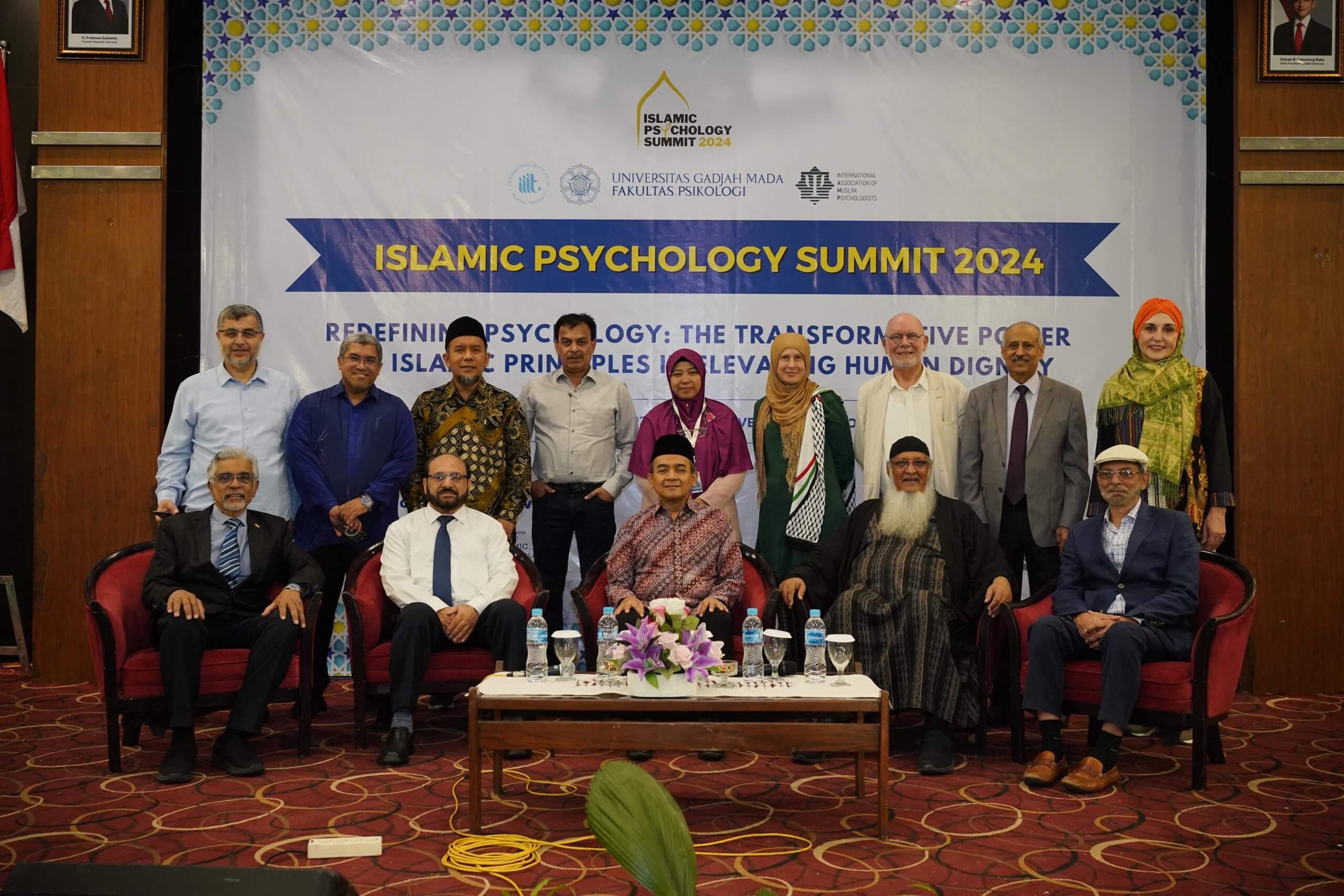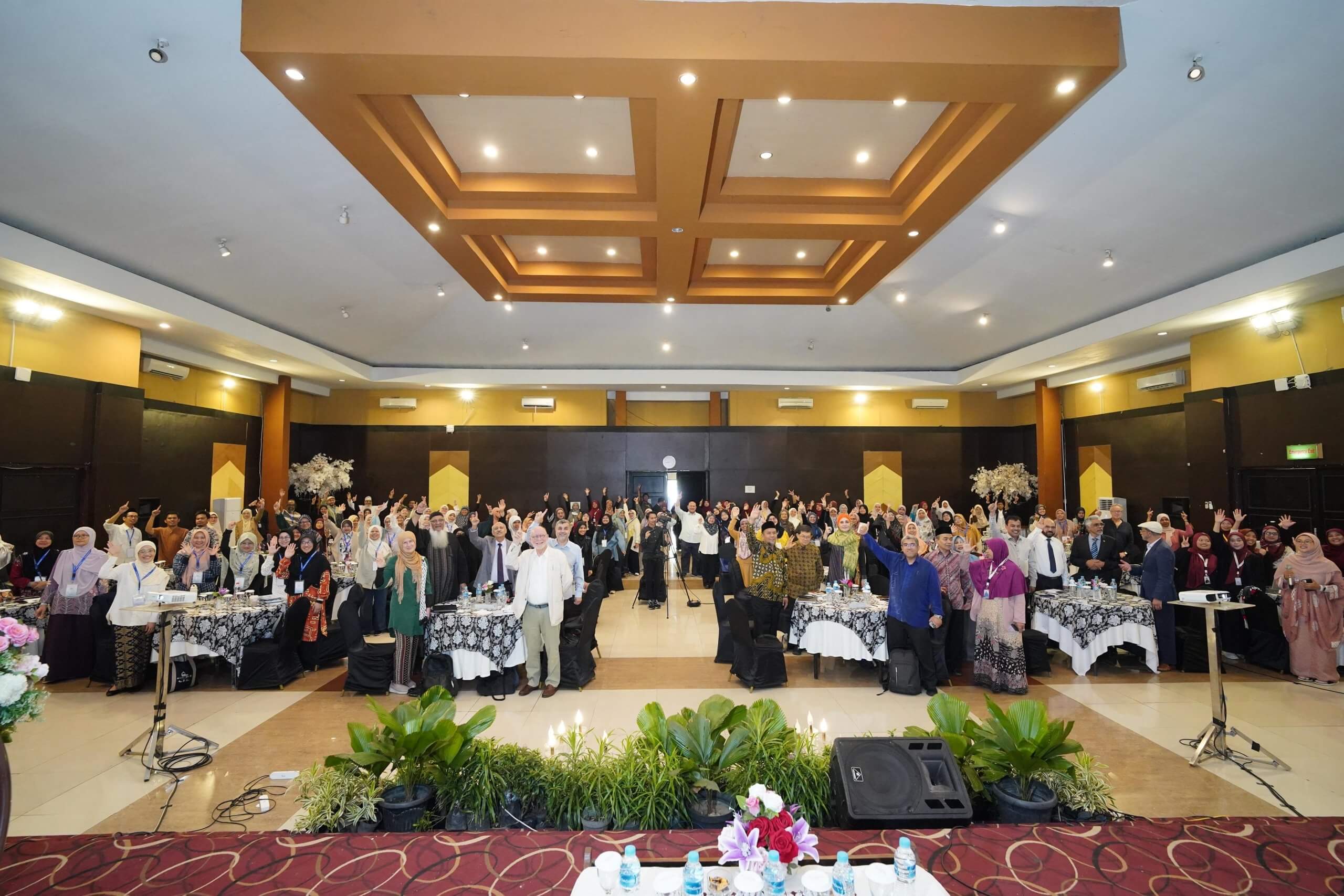Psychology is a discipline dedicated to observing and gathering information about human characteristics, analyzing and explaining patterns of thought, feelings, and behavior, and predicting actions towards oneself, others, and the environment.
The field has received remarkable attention, with many individuals pursuing studies, aiming to become professionals, or seeking psychological support when facing challenges in life.
There are several fundamental questions with regard to the discipline of Psychology. Who do we study? Do we study man in totality or man's behaviors and mental processes only? How do we study man? The other pertinent questions are on the extent to which if ethics, and practices of Psychology are grounded on sound fundamentals.

These questions were addressed in a summit which brought together scholars, researchers, and practitioners to explore and discuss the theme Redefining Psychology: The Transformative Power of Islamic Principles in Elevating Human Dignity. The gathering manifests the commitment of the organizer, namely the International Association of Muslim Psychologist (IAMP) and Universitas Gadjah Mada, Indonesia in contributing to the development of Islamic Psychology. The following are the recapitulation from the papers presented in the summit.
Students and teachers of psychology are often predominantly exposed to mainstream concepts, principles, and knowledge. However, there also exists a wealth of insights and principles rooted in specific local cultures and belief systems that describe human characteristics.
Although these insights are often not labeled as 'psychology', they provide valuable perspectives on human behavior and thought, often expressed as values and wisdom. In short, the input of psychological knowledge is contingent upon several fundamental factors, namely belief systems, local wisdom, and the historical contexts of those studying them.
By and large, Islamic identity and values serve as foundational elements for shaping human life.
Islam, a religion filled with mercy and compassion, provides guidelines for managing various aspects of life: it addresses economic ethics by disapproving of riba (usury); it offers principles in politics by emphasizing the importance of the ummah (community); and it focuses on human development, particularly through the concept of the soul or nafs, as discussed in the Quran.
In this context, Islamic psychology plays an important role in explaining the nature and characteristics of humanity as a whole, particularly regarding human behavior and development, regardless of religious or belief systems.
The summit emphasized the importance of positioning Islamic teachings at the forefront when studying human nature. The primary sources of knowledge-the Quran and Hadith-offer insights into the reality of human nature, the values that should guide individuals in studying or interacting with others, and the practices they should embody in their lives.

Muslim psychologists have positioned the field of psychology on several foundational principles. At the summit, various presentations invigorated participants' perspectives, highlighting the need to redefine psychology.
This redefinition is essential for elevating human dignity, which has been compromised, in part, by how humans are described in modern psychology. Such portrayals are seen as distorting the understanding of human nature and, consequently, diverting individuals from their ultimate aim: true happiness.
Redefining psychology requires a return to revealed knowledge, as Islam possesses a vast reservoir of insights and principles on human nature that have often been overlooked in the study of psychology.
These perspectives indicate that the definition of psychology requires rethinking, particularly to achieve a more comprehensive scope for the discipline and to properly position its role in society.
The discipline merits redefinition to enable us to establish a self-sustaining approach to understanding human nature, addressing societal challenges, and formulating strategies to nurture, improve, and enhance quality of life, well-being, or hasanah in our communities, using knowledge, principles, and values rooted in Islam.
There are several key aspects to consider when redefining psychology. First is the method of generating knowledge about human nature, which involves systematic observation of relevant variables.
While modern psychology emphasizes observable phenomena, not everything that can be observed necessarily contributes to psychological understanding, nor does the unobserved lack validity. Epistemologically, revealed sources offer substantial insights that should serve as foundational bases for psychological knowledge, particularly in understanding human reality, nature, and purpose. Classical texts by Muslim scholars, jurists, and philosophers have drawn on the Quran and Hadith to further elucidate human nature.
Evidence-based science alone is insufficient to reveal the full truth about humanity; revealed knowledge is essential to comprehend human reality, as reflected in the Quranic use of ayat, which signifies the presence of evidence. Islamic psychology acknowledges the value of empirical research and its capacity to provide further insights aligned with revealed knowledge.
Ultimately, Islamic psychology should integrate both modern and revealed sources when studying and researching human nature.
The second essential aspect is the focus of study in understanding humanity. Islamic psychology's scope should extend beyond observing behaviors, analyzing brain function, or studying cognitive processes; it must enrich the ontology of psychology from an Islamic perspective.
Psychology should center on the question of who the human being is, requiring a holistic study of human qualities beyond just behavior and mental processes. This underscores the importance of exploring Quranic verses and Hadith related to human nature and behavior.
These sources guide individuals in knowing themselves and their Creator, fostering well-being in this life and the hereafter. It is as much about understanding what a human is, as it is about what a human does and will become.
Defining human reality depends on one's worldview, which in Islamic thought relates closely to concepts of the heart, or Qulub in the Quran, Qalb in Hadith, and interconnected ideas such as Al-Lub, al-Fuaad, al-Faham, and al-Raja'.
This approach calls for the ability to extract, interpret, and integrate concepts, knowledge, and principles of psychology from the Quran, Hadith, and relevant classical Islamic text.
The third aspect is the axiological dimension, concerning the ethics and values in the study and practice of psychology. Numerous verses in the Quran and traditions of the Prophet emphasize values and ethics that individuals should learn, teach, internalize, and practice.
This aspect requires careful attention from scholars, educators, students, and practitioners, as it relates to achieving psychological well-being or, conversely, facing negative consequences if these ethics are violated or values are ignored.
This dimension highlights fitrah (innate nature) or the original goodness of humanity, with a focus on development rather than merely describing the structure and functions of human attributes, especially in moral and spiritual growth.
These values contribute to strategies that promote healthy living, as health in Islamic psychology is viewed holistically. It encompasses physical, social, mental, emotional, and spiritual dimensions, rather than being limited to physical well-being alone..
Another important aspect to consider is the purpose of studying psychology. The current focus tends to center on enabling individuals to experience happiness in life; however, this often emphasizes short-term happiness and can involve harmful substances or interventions that jeopardize human dignity. In Islam, true happiness is intrinsically linked to human dignity, a state associated with freedom. Individuals must have the ability to engage with revealed sources and Islamic literature to gain fundamental knowledge.
This teleological perspective on psychology calls for a bolder reliance on the Quran and Hadith, which provide comprehensive principles regarding human destiny, the conditions individuals will face, and the potential consequences or rewards for their actions, thoughts, and emotions. These insights should serve as a foundation for formulating interventions and guidelines aimed at developing both individuals and society.
There is a critical need to address the purpose of studying Islamic psychology, which aims to nurture holistic well-being. This field should be grounded in Islamic-based and local wisdom-based knowledge regarding human nature, behavior, and all aspects of humanity. This is essential, especially as humans navigate an increasingly changing world that places them at risk concerning mental health. In some contexts, psychology may appear to be well-structured and professionally established, yet the community may still experience high levels of poor psychological health.
In conclusion, the study of psychology, when grounded in revealed sources, does not fragment our understanding of human existence and well-being, nor does it diminish its practical importance. Rooted in an Islamic worldview that considers humans in totality, the scope of psychology is comprehensive, addressing more than just specific dimensions of human experience.
The purpose is to facilitate individuals in attaining spiritual well-being, which is integral to mental health, developing resilience, experiencing holistic healing, and aligning therapeutic approaches with values. Speakers and presenters at the summit provided valuable insights that encourage participants to integrate Islamic teachings into the study and practice of psychology.
This input can be organized around several key fundamentals: the Epistemology, Ontology, Axiology, and Teleology (E-OAT) of psychology from an Islamic perspective. A redefinition of psychology is necessary to establish universal guidelines for studying the discipline, reconciling faith and psychology, and bridging the gap between spiritual beliefs and modern psychological methods.
The above note is a recapitulation from the Islamic Psychology Summit, organized by the International Association of Muslim Psychologist (IAMP) and Universitas Gadjah Mada, Indonesia, on 24-27 October, 2024 in Yogyakarta, Indonesia
Shukran Abd Rahman is professor of Industrial and Organisational Psychology at AbdulHamid AbuSulayman Kulliyyah of Islamic Revealed Knowledge and Human Sciences, International Islamic University Malaysia. He is also a committee member in the International Association of Muslim Psychologist (IAMP)